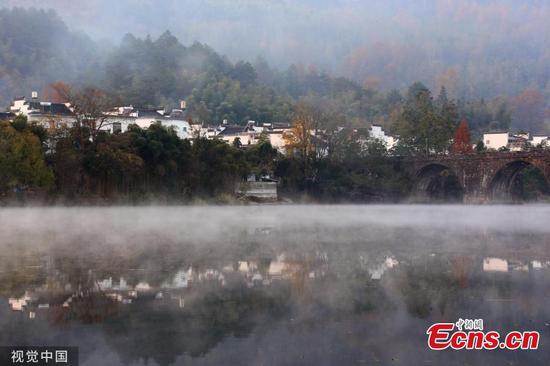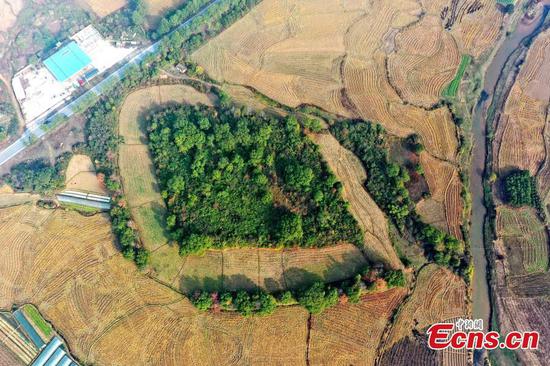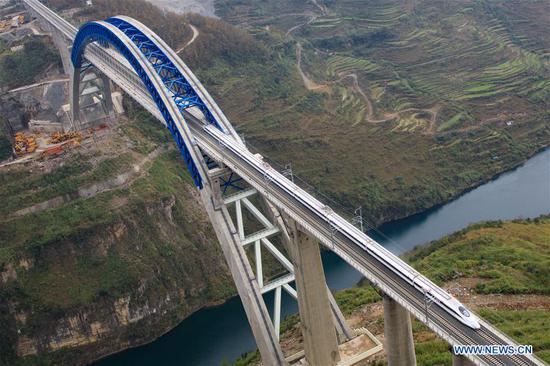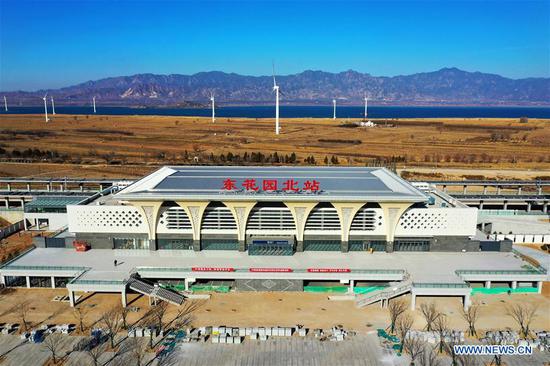China has enough confidence to ensure that the principle of "one country, two systems" is carried forward in an orderly and steady manner, given its successful implementation in the Macao Special Administrative Region, the country's top legislator said on Tuesday.
The principle is the best solution to maintaining long-term prosperity and stability in the Macao SAR, said Li Zhanshu, chairman of the Standing Committee of the National People's Congress, China's top legislature.
He made the remarks at a symposium on Tuesday in Beijing to mark the 20th anniversary of the implementation of the Macao Special Administrative Region Basic Law. In accordance with the Constitution, the Basic Law has established the institutional arrangements for Macao since it returned to the motherland in 1999.
The successful implementation of the Basic Law in Macao proves that it can withstand the test of time, said Li, also a member of the Standing Committee of the Political Bureau of the Communist Party of China.
Over the past 20 years, Macao has seen great achievements in various undertakings. Sustained economic growth and abundant fiscal revenue have significantly improved people's livelihoods and welfare.
The SAR's GDP grew from 51.9 billion patacas ($6.4 billion) in 1999 to 444.7 billion patacas in 2018. Per capita GDP also jumped from 120,000 patacas in 1999 to 670,000 patacas in 2018, ranking among the highest in the world, official data shows.
Chui Sai-on, chief executive of the Macao SAR who also attended the symposium, said the successful practice shows that the principle of "one country, two systems" is workable and popular.
The principle ensures that the Macao SAR has strong backing from the nation and also enjoys the benefits of "two systems", which grants Macao a high degree of autonomy, he said.
Chui said that the Constitution and Basic Law, which guarantee Macao's successful implementation of the "one country, two systems" principle, must be upheld.
Lei Pui-lam, a member of the Macao SAR Basic Law Committee of the NPC, said Macao has made great strides in promoting the Constitution and the Basic Law among all sectors of society, including school textbook editions, which are an important part of patriotic education.
The principle of "one country, two systems" was included as a major part of China's system of governance.
"It means our understanding of the rules of the practice (of the principle) has reached a new height," said Li, the top legislator.
"We have accumulated enough experience, confidence and strength to ensure the steady implementation of the principle, and to ensure the Constitution and the Basic Law are fully, accurately and effectively implemented," he said.
Li said that in the future, the central government's overall power of governance over the Macao SAR and the region's high degree of autonomy should be better exercised in accordance with the law.
They are interrelated and intrinsically consistent, and under no circumstances can they be separated or opposed, he added.
Li also urged the Macao SAR to continue establishing and improving institutions and mechanisms to safeguard national security.
He said Macao should prohibit and punish any act that seriously endangers national security — including treason, secession, sedition or subversion of the central people's government — and resolutely deter outside forces from interfering in Macao affairs.
Law enforcement forces should ensure the effective implementation of all legal systems, Li added.
Zhang Xiaoming, director of the Hong Kong and Macao Affairs Office of the State Council, also stressed at the seminar that the core essence of the "one country, two systems" principle is to firmly safeguard national sovereignty, national security and developmental interests.









